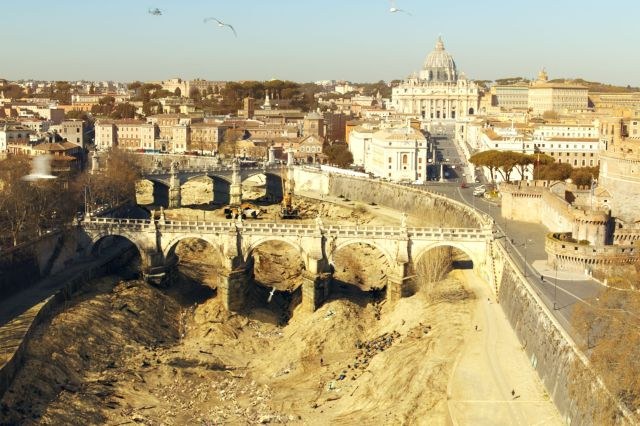The goal of the fifth edition of "Il Nastro Verde" is to inform, raise awareness, and awaken a conscious and participatory opinion. It aims to highlight the link between climate change, global instability, and individual responsibilities, all towards building a world where humans and the environment coexist in balance. The University of Bologna's film festival, organized this year in collaboration with the Bologna Cineteca, taking place at the Modernissimo cinema (Via Rizzoli 1/2, Bologna) from 4th to 29th April. Free for the first 150 students who collect their tickets at the Cineteca Bookshop by presenting their badge, tickets cost €3.50 for students and university staff.
The five events will showcase feature films, short films, documentaries, and fiction dedicated to sustainable development themes. Stories, words, images, studies, and research will intertwine to provide the audience with insights into the challenges and hopes of an ever-evolving world.
Each screening will be preceded by an introduction by one or more scientific experts from the University of Bologna on the identified themes, followed by a debate on the film topics. The cinema thus becomes a tool to engage the entire community on collective environmental issues.
What would change in cities, social relationships, and lifestyles if a vital resource like water were to disappear? An answer comes from Paolo Virzì with the film "Siccità" (2022), screened on Thursday, 4th April, at 5 p.m., marking the first event of the festival. It envisions an apocalyptic Rome where it hasn't rained for years, reaching extreme water scarcity levels, and disrupting the city's habits and its inhabitants' lives. A narrative between the post-apocalyptic and the tensions of the present that generates an imaginary reality, but at the same time increasingly familiar and close. Guest speakers for the evening include Riccardo Gasperina Geroni, professor of Italian Literature, and Marco Cucco, professor of Cinema and Audiovisual Media.
The second event, scheduled for Thursday, 11th April, at 6:30 p.m., focuses on the collective docufilm "Futura" by Alice Rohrwacher, Francesco Munzi, and Pietro Marcello. It explores the visions of today's youth about their world and future. Speakers for this event include Maria Letizia Guerra, professor at the University of Bologna and Delegate for Public Engagement, Marco Cucco, and Fabio Celot, Social Communication at the University of Bologna.
On Wednesday, 17th April, at 8 p.m., "Po" by Andrea Segre will be screened. This documentary reflects on the tragedy of the Po River flood that occurred on 14 November 1951, delving into its consequences on the territory and its people. Director Andrea Segre will be present, and guest speakers include Giovanni Dinelli, professor of Agronomy and Arboriculture, and Antonella Giliberti from the Sustainability Communication Office of University of Bologna.
The impact of dietary distortions on social and affective relationships will be the focus of the event on Monday, 22nd April, at 5 p.m., featuring Darren Aronofsky's film "The Whale." It's an opportunity to reflect on the relationship with food and dietary culture in today's society. To delve into the topic, Marco Cucco and Andrea Segre, professor of Circular Economy and Policies for Sustainable Development, will contribute.
The festival concludes on Monday, 29th April, at 5:30 p.m., with a series of five short films focusing on climate change and pollution damages (four of which come from the Environmental Visions section of the Italian Visions Festival of the Bologna Cinematheque): "Tilipirche" by Francesco Piras, "Wind Day" by Enrico Poli, "48 gradi" by Andrea Iorio,"68.415" by Antonella Sabatino, and "Fango" by Rita Marzio Maralla. Speakers include some of the short film directors, Marco Cucco, and Valentina Cappi, professor of Sociology of Cultural and Communicative Processes.
For Unibo students and staff, the ticket price is €3.50. Admission is free for the first 150 students who collect their tickets at the Cinematheque Bookshop by presenting their badge. Reduced ticket: €5.00. Full-price ticket: €6.00.





